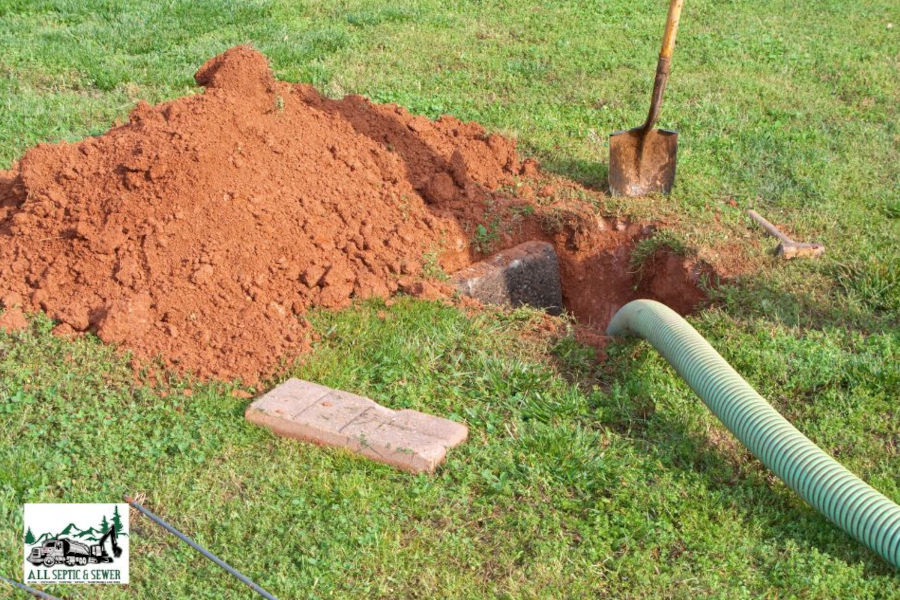When managing your property’s wastewater systems, ensuring proper care for old or unused septic tanks is just as important as maintaining a functioning one. Decommissioning an old septic tank is a critical process that protects your property, the environment, and the safety of those around you.
Whether connecting to a municipal sewer system, installing a new septic tank, or redeveloping your land, decommissioning is a step you can’t afford to skip. At All Septic & Sewer, we specialize in safe and compliant decommissioning, ensuring the job is done right while protecting your property and the surrounding environment.
What Does It Mean to Decommission a Septic Tank?
Decommissioning a septic tank involves permanently taking it out of service and ensuring it no longer poses a risk to the environment or public safety. This process is not a DIY project—it requires professional expertise to ensure it’s done correctly. Improper decommissioning can lead to groundwater contamination, soil pollution, or even dangerous structural collapses.
The process typically begins with pumping out any remaining liquid or sludge from the tank. Once empty, the tank is either removed entirely or filled with compacted soil or gravel. The method chosen depends on factors like the tank’s material, size, and location.
For example, concrete tanks are often filled in place, while steel, fiberglass, or plastic tanks are usually removed and crushed. After decommissioning, the area can be safely landscaped or repurposed.
Why Is Decommissioning Necessary?
Decommissioning an old septic tank is essential for several reasons. First and foremost, it’s a matter of safety. Over time, unused septic tanks can deteriorate, leading to collapsing lids or walls. This creates a serious hazard for anyone walking or driving over the area. Additionally, old tanks can accumulate methane gas, which is toxic and highly flammable, posing a risk of explosion.
Environmental protection is another key reason for decommissioning old septic tanks. If left unattended, these tanks can leak harmful contaminants into the soil and groundwater, polluting local water sources and ecosystems. Proper decommissioning ensures that your property remains safe and environmentally responsible.
What Factors Influence the Cost of Decommissioning?
10,000,withanaveragecostofabout Decommissioning a septic tank can vary widely, typically ranging from a few thousand dollars to around $10,000, with an average cost of about $5,500. Several factors influence the final price:
Factor 1 – Tank Size: Larger tanks require more labor and materials to decommission, increasing the overall cost.
Factor 2 – Tank Material: Steel, fiberglass, and plastic tanks often need to be removed and crushed, which is more labor-intensive than filling in concrete tanks.
Factor 3 – Decommissioning Method: Removing a tank entirely is more expensive than filling it with soil or gravel.
Factor 4 – Location: Accessibility and local regulations can also impact the cost.
While decommissioning may seem like a significant expense, it’s a worthwhile investment to avoid the far greater costs of environmental damage, injuries, or legal liabilities.
When Should You Decommission a Septic Tank?
There are several scenarios where decommissioning is necessary. If you connect your property to a municipal sewer system, your old septic tank must be decommissioned to comply with local regulations. Similarly, the old tank should be removed if you’re installing a new septic system in a different location.
Property redevelopment is another common reason for decommissioning. If you’re demolishing an old structure or preparing land for new construction, removing or filling the septic tank is crucial.
In some counties, such as King, Pierce, and Thurston, specific regulations mandate decommissioning when a property is within a certain distance of a sewer system.
Trust the Professionals for Safe and Effective Decommissioning
Decommissioning an old septic tank is a complex process that requires specialized knowledge and equipment. Attempting to handle it yourself can lead to costly mistakes and serious risks. That’s why working with a trusted professional like All Septic & Sewer is essential.
With years of experience and a commitment to quality, All Septic & Sewer ensures that your old septic tank is decommissioned safely, efficiently, and in compliance with all local regulations. As a veteran-owned company serving Pierce, Thurston, and King counties, we take pride in providing reliable, professional service that protects your property and the environment.
Don’t leave your property at risk—contact us today to schedule your decommissioning service and ensure peace of mind.



